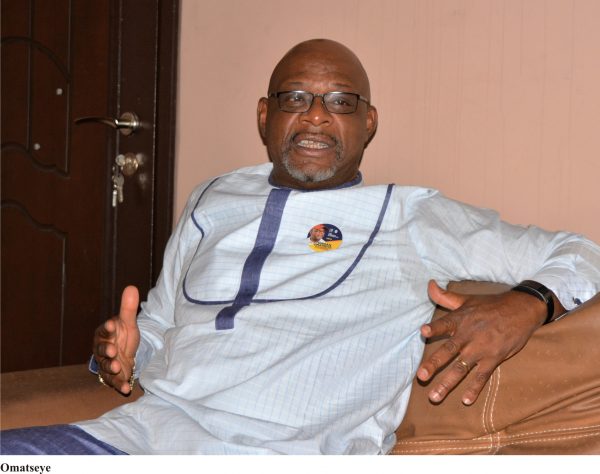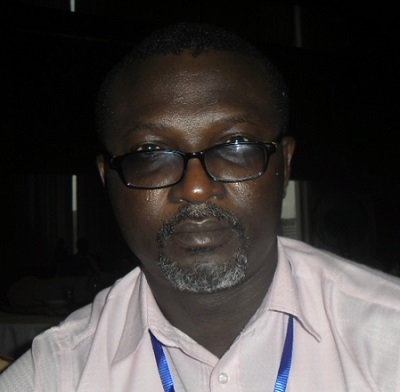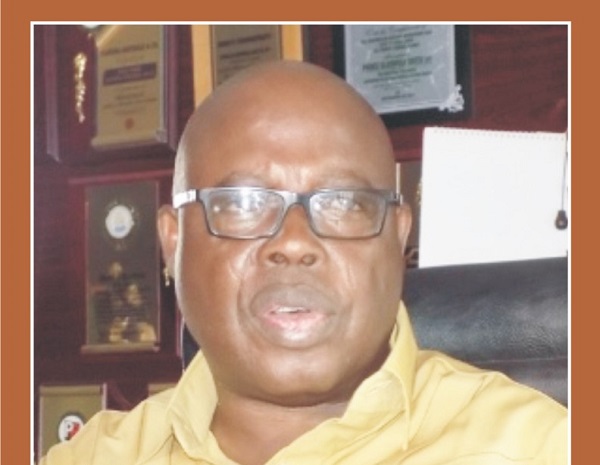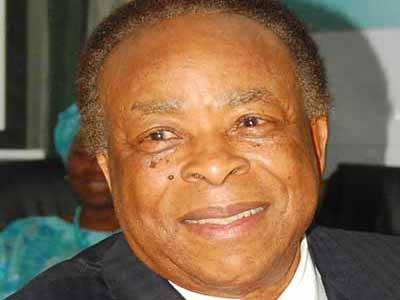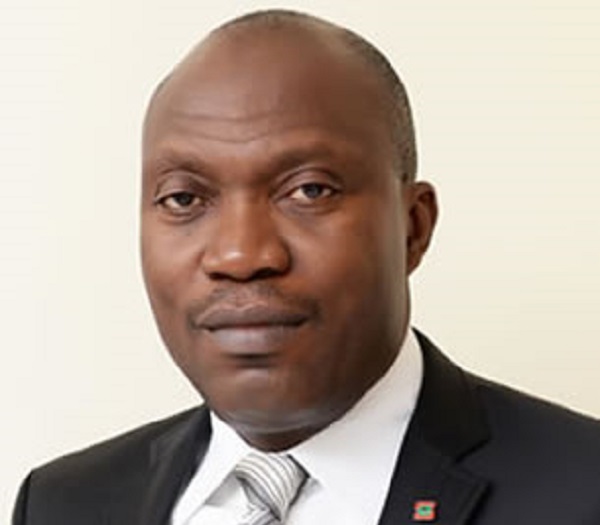AMCON, NIMASA Synergy Can Salvage Defaulting Nigerian Ships – Omatseye
By Kenneth Jukpor
Barr. Temisan Omatseye is a former President of African Shipowners Association (ASA) and former Director General of Nigerian Maritime Administration and Safety Agency (NIMASA). In this interview, he shares thoughts on several salient issues in the nation’s maritime sector. Enjoy it:
The handling of ships by Assets Management Corporation of Nigeria (AMCON) has been a problematic issue in the nation’s shipping sector. This has seen ship owners and the nation lose scarce assets that would have been vital to the sector. How best can this unfortunate development be corrected?
I have personal experience on this. AMCON assets are toxic assets and we can’t take them away from the corporation because they bought the assets from banks following bad loans. Irrespective of the circumstances that led to the take-over of such assets, the government should be one. One agency should know what another government agency is doing and work towards complimenting the other.
If an agency like AMCON has taken over vessels, the ideal thing for AMCON should be to go back to an agency like NIMASA to check the functionality or usefulness of the assets. NIMASA should appraise the viability of the assets and give advertisements for people to come up to manage the asset.
NIMASA could also take funds from the Cabotage Vessel Finance Fund (CVFF) to upgrade the asset and create an enabling environment that would ensure such vessels remain afloat to repay the loan. NIMASA could repay the loan from CVFF and develop a framework to manage such assets to ensure that they keep generating revenue for the country.
The problem is that a lot of people that get into positions of authority in governance aren’t business people. They are just happy with the fact that they can get their salaries when due. Those who think like business persons wouldn’t allow such assets to go aground.
You just mentioned CVFF and the other options the fund could be channeled towards. Barge operators recently described the fund as an opportunity for them. What’s your take on this?
One can be quick to point out the fact that barge operators aren’t contributors to CVFF. However, that would be a biased move because the CVFF guidelines didn’t say only contributors qualify to access the fund. The guidelines just specify that it is for indigenous operators and barge operators have a right to have access to the fund.
However, I don’t believe the fund should be given to barge operators and the reason is that Nigeria has the capacity to build barges. What we should be doing at the moment should be partnering with the Institutes of welders to develop people that are qualified and certified so that they can begin to build barges. Most of the barges currently on Nigerian waters are built in Nigeria and they meet the Cabotage requirements.
NIMASA should be certifying yards and welders because the Institutes of welders are sending so many Nigerians abroad. Why can’t we retain most of these welders in the country? Honestly, in building a ship, the most important part is to get the barge section right. I don’t see why Nigeria isn’t training more naval architects because we don’t have enough in the country. These are the crucial players who actually design the ships; because we don’t want ships to go to the bottom of the water as soon as they sail. I understand that NIMASA only has one of such naval architects.
The Nigerian Seafarers Development Programme (NSDP) ought to provide training to cover the aspect of naval architects. We have focused more on training cadets, so I don’t know how many people have been trained in this area.
You chaired the NIMASA Stakeholders committee on Cabotage with a plan to seize waivers on fishing vessels and certain categories of vessels from 2020. What is the latest development on Cabotage?
Well, as you know there is a new administration at NIMASA and things seem to be hanging at the moment because the new administration hasn’t said what they want to achieve in this area. I have raised this with the Director General of NIMASA, Dr. Bashir Jamoh and we have gone quite far with our report. We had sub-committees and other stakeholders making input but at this point, we are yet to get an approval from the new NIMASA team. We intend to continue when the new NIMASA team addresses some issues of the secretariat and redefine the objectives.
Ship financing remains a major challenge in Nigeria. What solutions would you proffer?
Nigerian banks don’t have the capacity to fund vessels. So, stakeholders need to use what they have to attract the required funds. In most cases, the banks ask for equity contribution on that asset which is between 15 percent to 20 percent.
However, there are some sorts of government to government guarantees that can be put in place. They may not necessarily be sovereign guarantees but guarantees that in event of non-performance the asset would be returned to the lender. This is what happens in the aviation sector with the Nigerian Civil Aviation Authority (NCAA) playing that role. I believe NIMASA can come up with such guarantees because NIMASA issues the savings notes. Vessels should report to NIMASA and the mortgage be registered with the agency; this explains why they are trying to upgrade the ship registry. This would make the process quite easier.
Nigeria also has to improve on its flag because if you don’t have a respected flag, most banks would be unwilling to lend to you. Banks want flags that are well respected. They want to be sure that they can make their reports online, have a good arbitration system; so that vessels that don’t meet the stipulated requirements can be easily taken back.
It is unfortunate that Nigerian banks don’t have the capacity. They are more capable of handling short term loans because they are trading banks. Not many Nigerian banks can finance 5 year projects, let alone 15 to 20 years financing required for ships.
Why is this unfortunate banking situation in Nigeria when a country like Singapore has banks that can give out long term loans at single digit interest rates?
Nigerian banks don’t have the capital base because we don’t have such monies in the country. In countries like Singapore people are willing to deposit long term funds. A lot of people are making money from Nigeria but they don’t have confidence in the banking system. So, they take these funds out and it is a major challenge that affects several sectors of the economy. The banks aren’t strong enough even though they would always claim otherwise. How many Nigerian banks can bring out $100million for a project?
Aren’t there opportunities to route foreign loans through Nigerian banks?
Of course, that is possible but the process is tedious. The foreign bank could disburse the loan at 3% or 4% interest rate which is good. However, they would demand a local bank guarantee and the local banks would charge another 4% to provide that guarantee. This takes the total interest rate to 8% but you’re going to compete in the same global market with ship owners who accessed their funds at 3%.
As a former president of African Shipowners Association (ASA), how would you compare the fiscal environment for Nigerian ship owners as it affects policies like duties on new ships and spare parts, Value Added Tax (VAT) to the situation in other countries?
On ships you don’t pay duties. It is only paid here in Nigeria as they say it is for home use. Nobody pays duties on spare parts in other countries. It isn’t done anywhere else and these are the issues killing the industry in Nigeria, especially the indigenous operators.
A foreign ship owner will come into the country under Temporary Importation (TI) and he pays just an insurance bond 0.1% for it. Whereas, if I buy the same ship and bring it to Nigeria I pay duty of over 17%. When I add that to my cost of going out on charter, how do I compete with someone who paid less in the same market? Don’t forget that the foreign operator also got his loan at 3% interest while I would have obtained mine at double digit interest rate. It is not possible to bid competitively for the same contract because the foreigner’s rate will be cheaper and the Nigerian system is that the lowest the bidder gets the job.
Why is it taking the Ministry of Finance long to address this because this campaign has been on for several years?
Well, it is a problem of education and it isn’t the ship owner that should drive it. It is for the Transport Ministry to bring these issues up through a memo at the Federal Executive Council (FEC). If the Minister has this understanding, he wouldn’t hesitate to bring these issues before the Council to approve it.
Of course, we know that the transport sector is broad and there are many issues to be addressed; but these are important aspects of the shipping industry that are seemingly ignored. Shipping, however, is a very technical field.
If Nigeria Ship Owners are allowed to use the same value as that on the TI, how much effect will it have in the shipping sector?
There are two ways it can work. The first is to create a Pre-Arrival Assessment Report (PAAR) if the Cabotage system is implemented properly by virtue of the tariffs. We can push the tariffs so high that it makes it very uncompetitive for the foreign ship owners. If we work on the tariff for the foreign ship owners then the Nigerian ship owners’ services become cheaper.
Another approach could be on the Cabotage license which can only be given for one year and a tariff of $200,000 can be inserted for foreigners. So, they will be aware that they have to get this money back in that period. On the other hand, Cabotage compliance vessel wouldn’t need to pay that $200,000 because he needs to renew every year to be on the Cabotage license.
If the issue of duty and spare parts can be removed, that brings the Nigerian ship owner’s cost down and creates a level playing ground.

